Posted on 1/30/2026
%20copy.jpg)
A grinding noise from the power windows is one of those sounds that makes you freeze with your finger still on the switch. The window might still move a little, or it might not move at all. Either way, it feels like something inside the door is getting chewed up. The tricky part is that power windows can make a few different bad noises, and each one points to a different failure. If you catch it early, you can often prevent a simple repair from turning into a broken regulator, a burned-out motor, or a window that drops into the door. Why A Grinding Noise Is Different From A Squeak Or Rattle A squeak usually comes from dry tracks, dirty guides, or weatherstrip drag. A rattle often points to a loose fastener, a clip, or a door panel issue. Grinding is different because it usually suggests gears, cables, or moving parts slipping against each other. Grinding also tends to get worse quickly. Once a cable frays, a plastic spool cracks, or a gear starts skipping teeth, ev ... read more
Posted on 12/19/2025
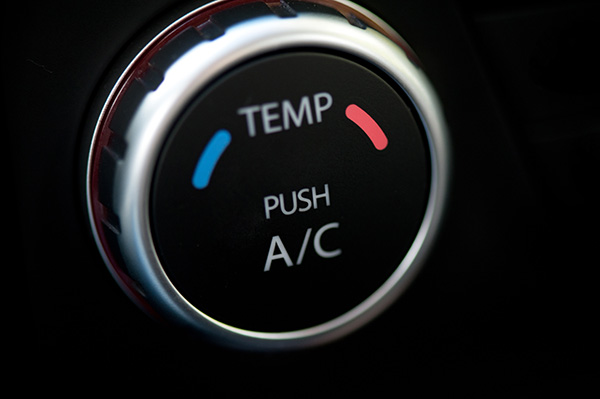
You turn the A/C on, expect a blast of cool air, and instead get a lukewarm breeze that never really catches up. Or maybe it works fine some days and barely cools at all on others. Those little changes are usually your car’s air conditioning system asking for help long before it completely stops working. Why Paying Attention to A/C Symptoms Matters Your A/C does more than keep you comfortable. It helps you stay alert on long drives, dries the air on humid days, and clears fogged windows when it is raining. When cooling starts to fade, most drivers adapt by cranking the fan higher instead of asking why it changed. We often find that early A/C symptoms would have been quick, relatively simple fixes if they had come in sooner. Waiting until the system is totally dead can turn a small leak or weak component into a bigger repair involving the compressor, condenser ... read more
Posted on 11/28/2025
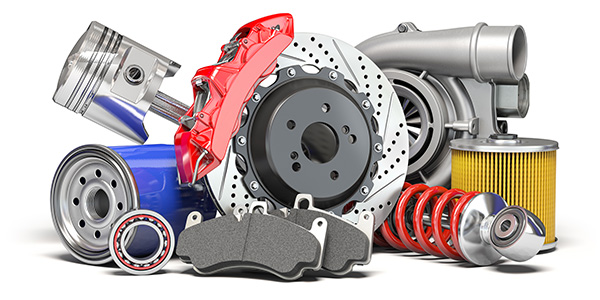
Choosing parts is not just about the cheapest box on the counter. The goal is the part that fits correctly, performs like the original, and lasts long enough that you do not buy the job twice. Use this guide to balance cost, quality, and peace of mind. Start With Fitment and Compliance A good choice begins with parts that match your vehicle by VIN. Fitment covers connector style, mounting points, and clearances. Compliance means the part meets the specifications the vehicle was designed around, from filtration ratings and friction codes to electrical output and software compatibility. If a component does not meet those specs, it can trigger fault codes, shorten service life, or void the warranty. OEM vs Aftermarket vs Tier-1 “OEM” parts are what the vehicle maker installed. “Tier-1” parts come from the same suppliers that build many OEM components, often to the same print. “Aftermarket” spans everything from pre ... read more
Posted on 10/31/2025
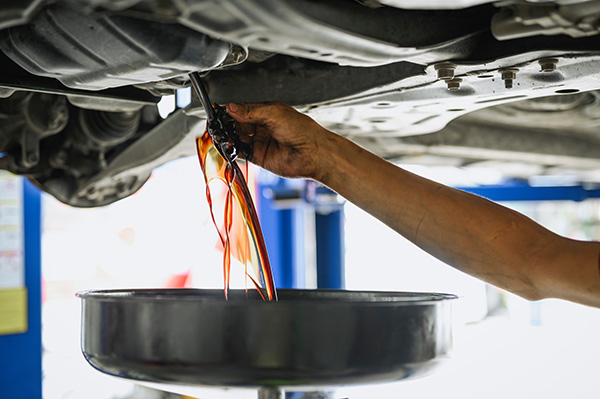
Changing your own oil can save money and help you learn more about your vehicle. It is also easy to make small mistakes that cause leaks, noise, or even engine damage later. If you like to spin the filter yourself, a quick review of the most common pitfalls will help you avoid a messy do over and keep your engine protected. 1. Using the Wrong Oil Viscosity or Spec Viscosity and specification are not guesses. Modern engines need the exact grade and spec listed on the oil cap or in the owner manual. Using thicker oil than recommended can slow flow on cold starts. Using the wrong spec can affect variable valve timing, turbo lubrication, and emissions controls. When in doubt, match both the viscosity and the manufacturer spec code. 2. Overfilling or Underfilling the Crankcase Too much oil can whip air into the fluid and create foam, which reduces lubrication. Too little oil starves the pump on hard stops and tight turns. After filling, let the engine i ... read more
Posted on 9/26/2025
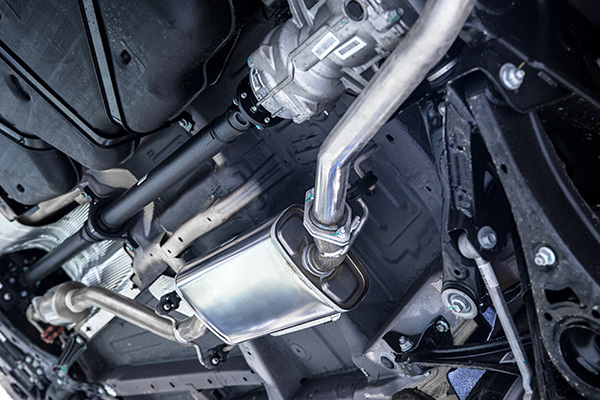
Hearing a rattling noise under your car can be unnerving, especially at low speeds when you expect a smoother ride. Drivers usually describe it as a loose metal sound, a faint clatter, or something shaking in rhythm with the wheels. While the noise may seem minor at first, rattles can indicate problems with exhaust parts, suspension components, or even heat shields. Identifying the source early is the key to preventing more costly repairs. Loose Heat Shields or Exhaust Components One of the most common causes of rattling comes from heat shields or exhaust system parts. Heat shields are thin metal plates designed to protect surrounding areas from engine and exhaust heat. Over time, they can loosen due to rust or broken fasteners. At low speeds, the vibration of the engine and road surface is enough to make them rattle. Exhaust pipes, hangers, and mufflers can a ... read more
Posted on 8/29/2025

The start of the school year often means tighter schedules, busier commutes, and more stop-and-go traffic than usual. Parents rush to drop kids off, students drive to campus, and everyone is trying to stick to a routine. All of this adds extra stress to your car, especially if it hasn’t had a checkup in a while. Making sure your vehicle is in good condition helps you avoid the inconvenience of breakdowns during the busiest time of year. Essential Brake Checks for Busy Morning Drives Brakes are the most important safety feature on your vehicle, especially when traffic is unpredictable. Worn pads or low brake fluid can reduce stopping power, which becomes dangerous in school zones and crowded intersections. If you notice squeaking, grinding, or a longer stopping distance, it’s time to have the brakes inspected. A simple brake check now can keep your family safe when those sudden stops are necessary. Tire Health and Traction for Fall Roads ... read more
Posted on 7/29/2025
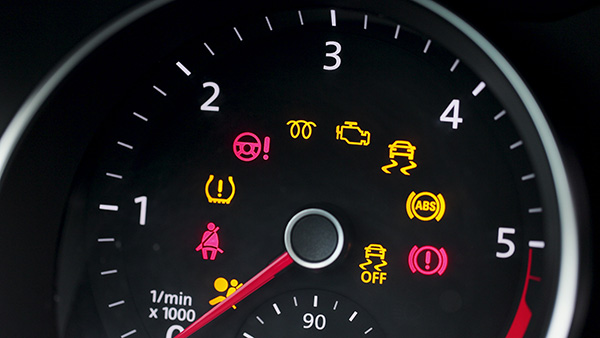
When summer temperatures soar, your vehicle feels it, especially the interior. You might already know that heat can cause battery strain or fluid evaporation, but what about the electronics in your dashboard? From infotainment systems and climate controls to sensors and digital displays, modern dashboards are equipped with a wealth of technology. And yes, excessive heat can absolutely cause problems. If you’ve ever returned to a hot car and found your touchscreen acting strange, your radio glitching, or warning lights appearing unexpectedly, the summer sun might be to blame. How Heat Builds Up Inside Your Car On a sunny day, the interior of a parked car can reach extreme temperatures in just minutes. If the outside temperature is 95°F, your dashboard can reach temperatures of 160°F or higher. Dark interiors and parked cars without window tint or windshield shades trap heat quickly, and the dashboard, especially where it meets the windshield, bears the ... read more
Posted on 6/27/2025

A long road trip often conjures images of scenic highways, roadside diners, and adventure. However, many drivers underestimate the physical and mental toll that extended time behind the wheel can take. Whether you're heading out for a weekend getaway or a cross-country journey, knowing when and how often to take breaks is crucial not just for your comfort but for your safety. Driving for hours without rest affects your concentration, reaction time, and decision-making skills. The risk of drowsy driving is very real, and it’s not just something that happens late at night. Even during daylight hours, the monotony of the road can cause fatigue. Taking regular breaks can dramatically reduce the chances of a crash and make your trip more enjoyable overall. The General Rule for Rest Stops Most experts recommend taking a break every two hours or 100 miles, whichever comes first. This gives your body a chance to stretch and your mind a chance to reset. Every drive ... read more
Posted on 5/30/2025
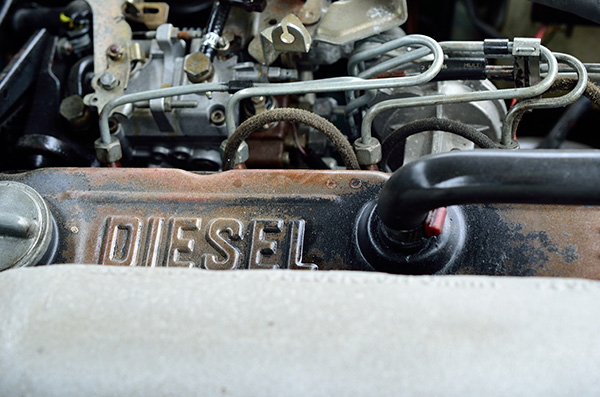
Diesel engines and gasoline engines may seem similar at a glance, but under the hood, they operate very differently. Because of this, the maintenance routines for diesel-powered vehicles vary quite a bit from those of gas-powered cars. If you drive a diesel truck or car, understanding these differences can help you keep your engine running longer, more efficiently, and with fewer surprises down the road. Regular maintenance is crucial for both types of engines, but the approach and timing can vary in ways that are important to know. How Diesel Engines Work Differently The core function of both diesel and gas engines is to convert fuel into energy through combustion. However, gasoline engines rely on spark plugs to ignite a fuel-air mixture, while diesel engines use compression alone to ignite diesel fuel. This difference in combustion affects everything from fuel efficiency and power output to maintenance schedules and potential repairs. Diesel engines are known fo ... read more
Posted on 4/28/2025
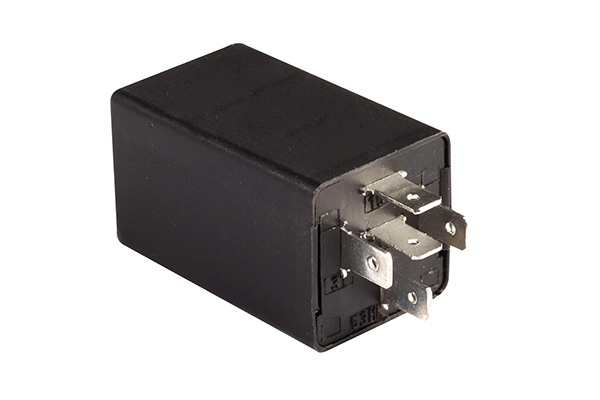
A car that won’t start can have many possible causes—from dead batteries to faulty starters—but one lesser-known culprit is the fuel pump relay. This small electrical component plays a big role in getting fuel from the tank to the engine. If it fails, your car might crank but never actually fire up, leaving you stuck and wondering what went wrong. Let’s take a closer look at what the fuel pump relay does, how to recognize when it’s failing, and what can be done to fix it. What Is a Fuel Pump Relay The fuel pump relay is an electronic switch that controls power to the fuel pump. When you turn the key or push the start button, the relay sends electricity to the fuel pump, allowing it to pressurize the fuel system and deliver gasoline to the engine. Without this brief surge of power, the pump doesn’t run—and the engine won’t get the fuel it needs to start. This component typically operates silently in the background, but ... read more